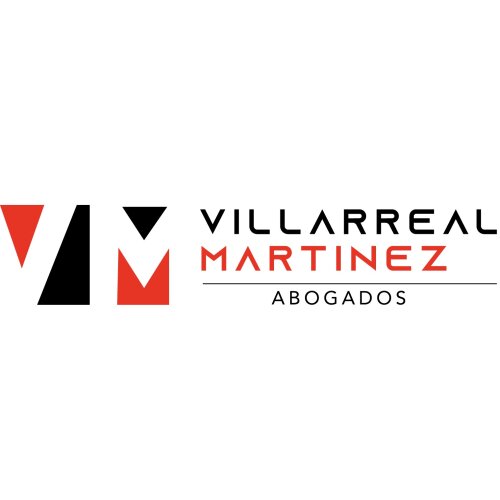Best Real Estate Lawyers in Monterrey
Share your needs with us, get contacted by law firms.
Free. Takes 2 min.
Free Guide to Hiring a Real Estate Lawyer
List of the best lawyers in Monterrey, Mexico
Mexico Real Estate Legal Articles
Browse our 1 legal article about Real Estate in Mexico written by expert lawyers.
- Buying Property in Mexico: Foreigner Legal Checklist
- Foreigners can own real estate in Mexico, but coastal and border properties usually require a bank trust (fideicomiso) or a Mexican company under the Foreign Investment Law. Every valid transfer of real estate must be formalized before a Notario Público and registered at the local Public Registry of Property to... Read more →
About Real Estate Law in Monterrey, Mexico
Monterrey is a thriving metropolis in northeastern Mexico known for its robust economic landscape and strategic location, making it an attractive destination for real estate investments. The city has a dynamic real estate market driven by both residential and commercial sectors. Real Estate law in Monterrey involves the regulation of property-related transactions, including sales, leases, and transfers. It encompasses a variety of legal disciplines, such as contract law, property law, and tax law, tailored to the local context.
Why You May Need a Lawyer
Navigating the real estate market in Monterrey can be complex, and there are several situations where legal assistance may be beneficial:
- Property Purchases: A lawyer can ensure the property title is clear and free of encumbrances.
- Lease Agreements: A lawyer can help draft or review lease agreements to safeguard your interests.
- Disputes: In case of disputes over property boundaries, contract terms, or ownership issues, legal intervention may be required.
- Zoning and Land Use: Understanding local zoning laws is crucial for property development and renovations.
- International Investors: For non-nationals, navigating the legal requirements for property investment requires specialized legal guidance.
Local Laws Overview
The real estate sector in Monterrey operates under federal, state, and municipal regulations. Here are some key aspects:
- Foreign Investment Law: This law regulates how foreigners can own land and property in Mexico, particularly within restricted zones.
- Urban Development Law: Governs the planning and development of urban areas to ensure orderly growth.
- Property Registration: All real estate transactions must be registered with the Public Registry of Property to guarantee legal standing.
- Tax Regulations: Real estate transactions in Monterrey are subject to various taxes, such as acquisition tax and capital gains tax.
- Environmental Regulations: Compliance with environmental standards is necessary, particularly for commercial developments.
Frequently Asked Questions
What is the role of a notary public in real estate transactions?
A notary public in Mexico plays a crucial role in formalizing real estate transactions, ensuring their legality, and providing public faith.
Can foreigners buy property in Monterrey?
Yes, foreigners can buy property, but they may need to establish a fideicomiso (trust) for properties within restricted zones.
What taxes do I need to pay when purchasing a property?
Buyers typically pay acquisition tax, notary fees, registration fees, and possibly VAT, depending on the type of property.
How can I check if a property has a clear title?
You can verify a property's title status through the Public Registry of Property or by engaging a legal professional to conduct a title search.
What should I consider when drafting a lease agreement?
Important considerations include duration, rent amount, maintenance responsibilities, and termination clauses. Legal advice is recommended.
Are there any restrictions on developing real estate in Monterrey?
Zoning regulations, environmental laws, and building codes can impose restrictions. Consultation with a local attorney is advisable.
What happens in case of a real estate dispute?
Affected parties may resolve disputes through negotiation, mediation, or litigation, if necessary, with the guidance of a legal professional.
How does the closing process work in Monterrey?
The closing involves signing the escritura (deed) before a notary, after which the property is registered, and transfer taxes are paid.
Is title insurance necessary in Mexico?
While not common in Mexico, title insurance can provide additional security by protecting against unforeseen title defects.
What is a condominium regime, and how does it affect ownership?
A condominium regime governs shared ownership aspects of properties. It includes rules for common areas and obligations of owners.
Additional Resources
For those seeking further information on real estate matters in Monterrey, the following resources may be helpful:
- Public Registry of Property and Commerce: For verifying property titles and transactions.
- Association of Real Estate Professionals in Monterrey: Offers guidance and referral to certified real estate professionals.
- State Government of Nuevo León: Provides information on urban development and environmental regulations.
- Mexican Tax Authority (SAT): For detailed tax-related inquiries and regulations.
Next Steps
If you require legal assistance in real estate matters in Monterrey, consider the following steps:
- Identify Your Needs: Clearly define the type of legal assistance you need, whether it's for purchasing, leasing, or resolving disputes.
- Seek Recommendations: Ask for referrals from trusted sources such as local real estate agents or professional associations.
- Consult a Local Lawyer: Engage a lawyer with expertise in Monterrey's real estate laws to guide you through the process.
- Prepare Documentation: Gather all necessary documents related to the property or transaction in question.
- Stay Informed: Keep abreast of any changes in local laws or regulations that may affect your real estate interests.
Lawzana helps you find the best lawyers and law firms in Monterrey through a curated and pre-screened list of qualified legal professionals. Our platform offers rankings and detailed profiles of attorneys and law firms, allowing you to compare based on practice areas, including Real Estate, experience, and client feedback.
Each profile includes a description of the firm's areas of practice, client reviews, team members and partners, year of establishment, spoken languages, office locations, contact information, social media presence, and any published articles or resources. Most firms on our platform speak English and are experienced in both local and international legal matters.
Get a quote from top-rated law firms in Monterrey, Mexico — quickly, securely, and without unnecessary hassle.
Disclaimer:
The information provided on this page is for general informational purposes only and does not constitute legal advice. While we strive to ensure the accuracy and relevance of the content, legal information may change over time, and interpretations of the law can vary. You should always consult with a qualified legal professional for advice specific to your situation.
We disclaim all liability for actions taken or not taken based on the content of this page. If you believe any information is incorrect or outdated, please contact us, and we will review and update it where appropriate.
Browse real estate law firms by service in Monterrey, Mexico
Monterrey, Mexico Attorneys in related practice areas.












